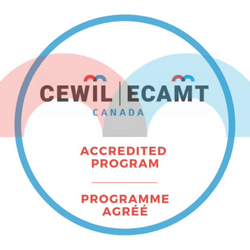
At Waterloo, co-op students alternate study terms with work terms and graduate with up to two years of relevant, paid work experience. This hands-on journey helps you navigate the job market, apply your talents to real-world challenges, and learn more about yourself in the process.
Benefits of co-op
- Apply what you've learned in the classroom to real-life work settings
- Get hands-on experience in your field of study
- Gain up to two years of meaningful, relevant work experience on your résumé
- Improve your interview skills and learn how to search for work
- Create connections through networking with employers and coworkers
- Explore alternate career paths and different work environments around the globe!
- Earn money to help pay for tuition and costs of living
- Learn more about yourself and your overall career direction



How co-op works
Every student’s co-op experience will look a little different depending on their program, interests, goals and work experiences. You’ll complete between four and six work terms (four months in length) throughout the duration of your co-op degree, which usually takes about five academic years to complete. This largely depends on the requirements for your program, as well as your program's specific sequence of study terms and work terms.
During the study term before a work term, you’ll search for jobs while taking courses, including one professional development course before your first scheduled work term to help you prepare for co-op. During your work terms, you'll be gaining experience, completing work reports and continue to take professional development courses to help you reflect on your experiences.

Join the UWaterloo Community
- Attend faculty 101 days and orientation
- Get to know your campus
- Co-op and Career Advisors
- PD Courses

Study/Recruiting terms
- Take classes
- Pay your co-op fee
- Review co-op important dates to understand hiring cycles
- Apply to jobs in WaterlooWorks or arrange your own job
- Participate in interviews and rank/match
- Get hired!

Work terms
- Complete 4-6 work terms (depending on your program and sequence)
- Build connections with your employer
- Grow your skills and experience
- Reach out to your co-op advisor for support
- Your employer submits a performance evaluation
Your responsibilities as a co-op student
To graduate with a co-op degree designation, you must follow our co-op roles and responsibilities and receive credit for the minimum number of work terms, work reports and professional development credits for the co-op program you are enrolled in.
To learn more about what co-op looks like for your specific program and when your next work term is scheduled, visit the co-op section of the Undergraduate Calendar.
Why we do what we do
Our mission is to inspire Waterloo students to connect to the possibilities in a continuously changing world of work; enable them to bridge their academic and workplace knowledge; challenge them to learn, grow, and contribute wherever they go.
Co-op fees and earnings
Similar to tuition, students enrolled in co-op programs pay fees to support the cost of running the co-op program at Waterloo. Understand your co-op fee, for a deeper look at why you pay, when you pay and where your money goes.
You must receive some form of compensation for your co-op work terms to receive credit. This compensation varies widely depending on your employer, your program of study, your work term level or your overall work experience. We annually publish average co-op earnings for students an employers to use as a reference.
Co-op student experience
The co-op student experience survey is an opportunity for you to provide feedback on what Waterloo co-op is like from a student perspective. Our team in Co-operative and Experiential Education (CEE) listens to what you have to say and prioritizes acting on your valuable input.
Throughout recruiting and work terms we invite you to share your feedback with CEE. If you're employed, access the survey in WaterlooWorks on your work term record. If you do not have a work term record, you're invited to share your experience on this form.
To learn more about the survey, our processes, findings and improvements, visit the co-op student experience survey page.
We're a co-op accredited institution
The University of Waterloo is a member of Co-operative Education and Work-Integrated Learning (CEWIL) Canada. In 1979, CEWIL established the Accreditation Council to regulate post-secondary co-operative education programs in Canada and to accredit those that meet specific criteria in an effort to ensure the quality of the co-operative education program. To date, the University of Waterloo has more than 120+ CEWIL Canada-accredited co-op programs across six faculties.
